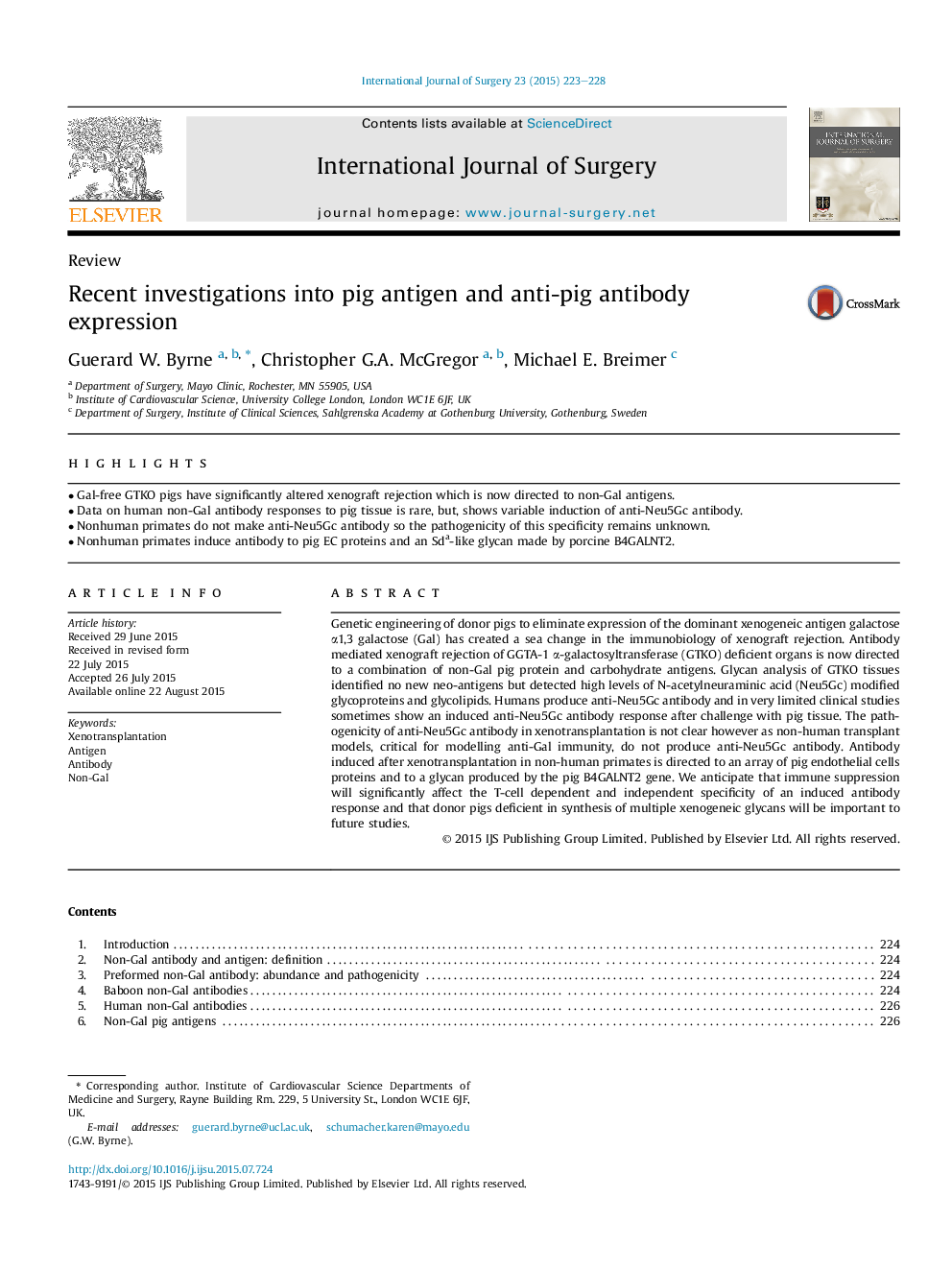| Article ID | Journal | Published Year | Pages | File Type |
|---|---|---|---|---|
| 4285717 | International Journal of Surgery | 2015 | 6 Pages |
•Gal-free GTKO pigs have significantly altered xenograft rejection which is now directed to non-Gal antigens.•Data on human non-Gal antibody responses to pig tissue is rare, but, shows variable induction of anti-Neu5Gc antibody.•Nonhuman primates do not make anti-Neu5Gc antibody so the pathogenicity of this specificity remains unknown.•Nonhuman primates induce antibody to pig EC proteins and an Sda-like glycan made by porcine B4GALNT2.
Genetic engineering of donor pigs to eliminate expression of the dominant xenogeneic antigen galactose α1,3 galactose (Gal) has created a sea change in the immunobiology of xenograft rejection. Antibody mediated xenograft rejection of GGTA-1 α-galactosyltransferase (GTKO) deficient organs is now directed to a combination of non-Gal pig protein and carbohydrate antigens. Glycan analysis of GTKO tissues identified no new neo-antigens but detected high levels of N-acetylneuraminic acid (Neu5Gc) modified glycoproteins and glycolipids. Humans produce anti-Neu5Gc antibody and in very limited clinical studies sometimes show an induced anti-Neu5Gc antibody response after challenge with pig tissue. The pathogenicity of anti-Neu5Gc antibody in xenotransplantation is not clear however as non-human transplant models, critical for modelling anti-Gal immunity, do not produce anti-Neu5Gc antibody. Antibody induced after xenotransplantation in non-human primates is directed to an array of pig endothelial cells proteins and to a glycan produced by the pig B4GALNT2 gene. We anticipate that immune suppression will significantly affect the T-cell dependent and independent specificity of an induced antibody response and that donor pigs deficient in synthesis of multiple xenogeneic glycans will be important to future studies.
